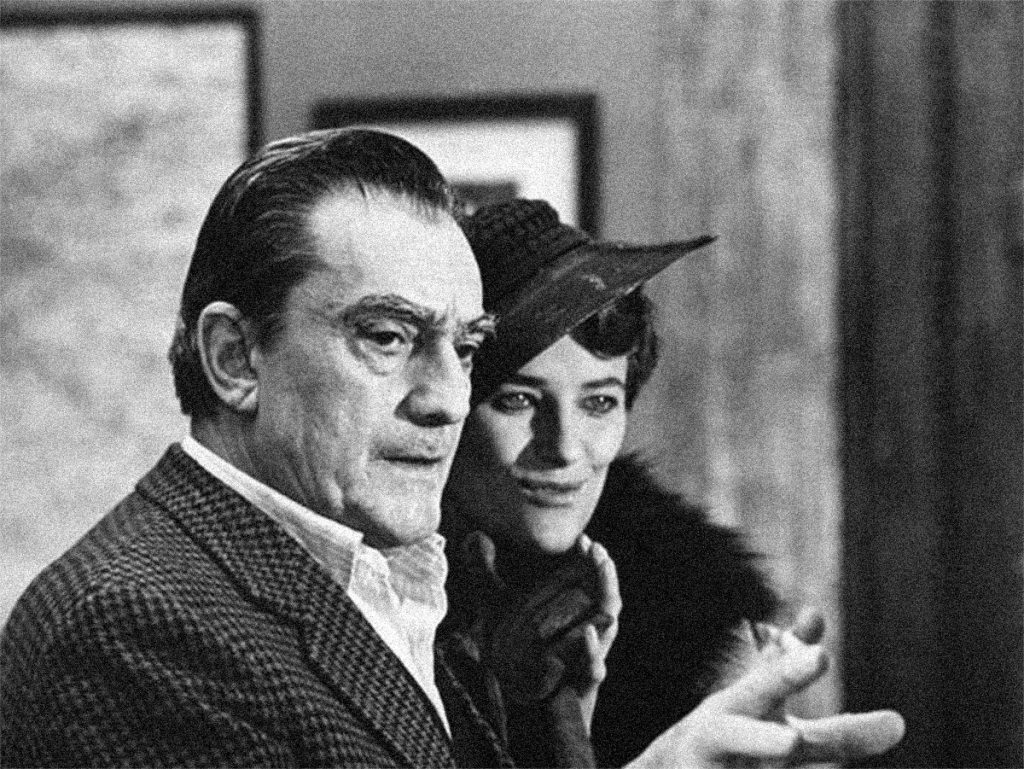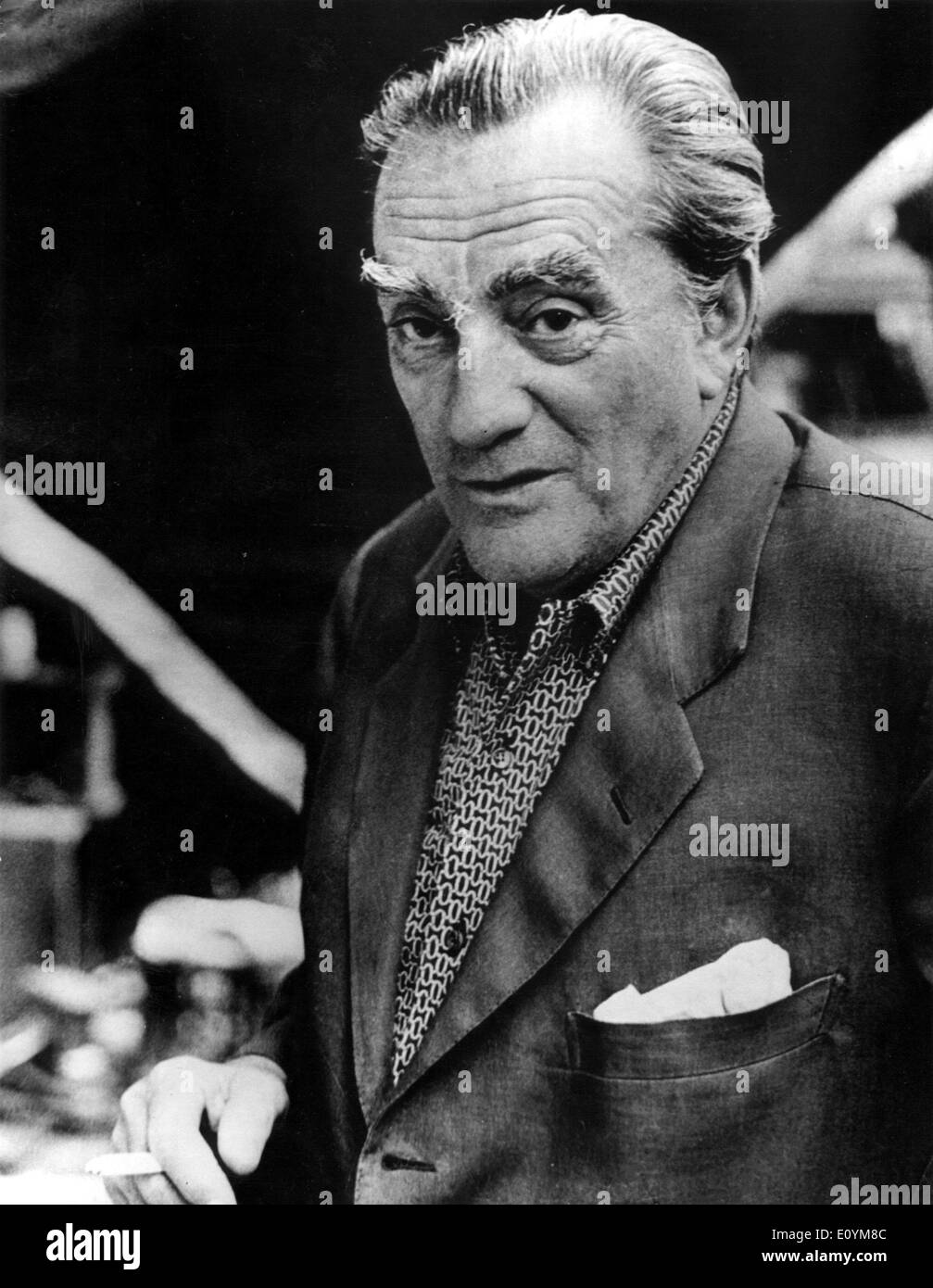
When one contemplates the rich tapestry of **Italian cinema**, a name that invariably emerges is that of **Luchino Visconti**. Born on November 2, 1906, in the vibrant city of Milan, Visconti transcended the role of a mere filmmaker; he emerged as a transformative force within the cinematic landscape. His innovative storytelling techniques and profound ability to encapsulate the complexities of human experience, particularly in the context of a post-war society, solidified his reputation as the **father of Neorealism**. This movement sought to portray the stark realities of everyday life, often focusing on the struggles of the marginalized and the impact of societal upheaval. So, what were the elements that rendered Visconti such a crucial figure in the annals of film history? To truly appreciate his contributions, we must delve into his life, explore his remarkable body of work, and examine the enduring influence he has had on the film industry as a whole. His films not only reflect the socio-political climate of his time but also continue to resonate with audiences today, making him a timeless icon in the realm of cinema.
Early Life and Influences

Born into Artistry
Born into an aristocratic family, Luchino Visconti was immersed in a world rich with artistic expression from an early age. His upbringing was steeped in creativity, as his mother was a gifted musician who instilled a love for music in him, while his father frequently hosted a variety of performers in their private theater. This vibrant artistic atmosphere not only nurtured his innate talents but also profoundly influenced his perspective on the world. One can only imagine the impact of such a stimulating environment, where the beauty of art was a constant presence, shaping his identity and future endeavors in the creative realm.
Education and Early Career
Visconti’s formal education in the arts began with a decade-long study of the cello, which provided him with a deep appreciation for music and its emotional power. Additionally, he explored the world of theatrical set design, allowing him to cultivate a keen eye for visual storytelling. This classical training established a robust foundation for his artistic pursuits. In 1935, he took a significant step in his career by becoming an assistant to the illustrious French director Jean Renoir. This pivotal experience not only sharpened his technical skills but also heightened his awareness of social and political themes, which would later become hallmarks of his distinctive cinematic style. The combination of his rich upbringing and rigorous education played a crucial role in shaping Visconti’s unique voice in the world of film, setting the stage for his future successes as a director and storyteller.
The Birth of Neorealism

Ossessione: A Game Changer
Visconti’s directorial debut, **Ossessione** (1942), marked a significant turning point in cinematic history as it was a groundbreaking adaptation of James M. Cain’s renowned novel, *The Postman Always Rings Twice*. This film not only established Visconti’s reputation as a visionary director but also showcased his innovative storytelling techniques that would influence generations to come. By skillfully blending **natural settings** with performances from both professional actors and local residents, Visconti created an unparalleled sense of authenticity that was revolutionary for its time, immersing audiences in a world that felt both familiar and deeply real.
Innovative Techniques
What truly distinguished Visconti from his contemporaries was his masterful use of **long-traveling camera shots** and hidden cameras, which allowed him to capture genuine, spontaneous moments of life. This unique approach not only enhanced the film’s realism but also laid the groundwork for the works of other prominent Neorealist filmmakers, such as **Roberto Rossellini** and **Vittorio De Sica**. By employing these techniques, Visconti was able to paint a vivid and unfiltered picture of existence, showcasing the raw emotions and struggles of his characters. His commitment to authenticity and innovative cinematography transformed the landscape of Italian cinema, paving the way for a new era of storytelling that resonated with audiences on a profound level.
Key Films and Their Impact

La terra trema: A Documentary Style
In 1948, the renowned filmmaker Luchino Visconti released his groundbreaking film **La terra trema** (The Earth Trembles), which is celebrated for its documentary-style approach. Set against the backdrop of the Sicilian fishing community, the film was shot entirely on location and notably featured non-professional actors, lending an authentic and raw quality to the narrative. The film’s poignant portrayal of the hardships faced by ordinary fishermen resonated deeply with audiences and critics alike, ultimately earning it the prestigious **Grand Prize at the Venice Film Festival**. Through this work, Visconti demonstrated his unwavering commitment to realism and his desire to shed light on pressing social issues, effectively showcasing the struggles and resilience of everyday people.
Bellissima and Siamo donne
Continuing to challenge cinematic conventions, Visconti produced influential films such as **Bellissima** (1951) and **Siamo donne** (1953), both of which starred the legendary actress **Anna Magnani**. These films delve into the intricate themes of beauty, ambition, and the multifaceted nature of womanhood in the context of post-war Italy. By exploring the aspirations and challenges faced by women during this transformative period, Visconti’s works struck a chord with audiences, earning critical acclaim and solidifying his reputation as a master filmmaker who was unafraid to tackle complex social themes.
Rocco e i suoi fratelli: A Family Saga
Another significant entry in Visconti’s illustrious filmography is **Rocco e i suoi fratelli** (1960), a compelling family saga that intricately examines the lives of Italian immigrants in Milan. The film artfully portrays the tension between traditional values and the demands of modern society, highlighting the struggles of a family as they navigate their new environment. With its emotional depth and powerful performances, **Rocco e i suoi fratelli** stands out as a must-watch for film enthusiasts, offering a profound exploration of identity and familial bonds amidst societal change.
Il gattopardo: A Cinematic Masterpiece
Perhaps one of Visconti’s most acclaimed works is **Il gattopardo** (1963), an adaptation of the celebrated novel by **Giuseppe di Lampedusa**. This film tells the poignant story of a traditional aristocrat grappling with the sweeping changes brought about by the unification of Italy. Visconti’s personal identification with the central character adds layers of complexity to the narrative, transforming it into a rich and reflective exploration of change, loss, and the passage of time. The film’s exquisite cinematography and meticulous attention to detail further enhance its status as a cinematic masterpiece, solidifying Visconti’s legacy as one of the great filmmakers of his time.
Visconti’s Influence Beyond Film

Theatrical Contributions
Visconti wasn’t just a filmmaker; he was also a prominent **theatrical director**. He introduced Italian audiences to the works of influential playwrights like **Jean Cocteau**, **Arthur Miller**, and **Tennessee Williams**. His ability to blend realism with theatrical spectacle was groundbreaking and paved the way for future generations of directors.
Opera Productions
During the 1950s, Visconti produced internationally recognized operas, collaborating with the legendary soprano **Maria Callas**. His productions of **La traviata** (1955) and **Don Carlos** (1958) were not just performances; they were artistic triumphs that combined realism with grand spectacle. Can you imagine the magic of witnessing such a performance?
Legacy and Final Works

Death and Posthumous Recognition
Visconti passed away on March 17, 1976, in Rome, but his legacy lives on. His films continue to inspire filmmakers and audiences around the world. At the time of his death, he was nearly finished editing his last film, **L’innocente** (The Innocent), based on the novel by **Gabriele D’Annunzio**. This unfinished work serves as a poignant reminder of his artistic genius.
Visconti’s Lasting Impact on Cinema
Today, Visconti is celebrated not just for his films but for his profound impact on the **Italian film industry** and global cinema. His commitment to realism and social issues paved the way for future filmmakers to explore similar themes. His works remain a vital part of film studies and continue to be analyzed for their artistic and cultural significance.

Luchino Visconti was more than just a director; he was a **cinematic pioneer** who reshaped the landscape of Italian cinema. His films, characterized by their realism and emotional depth, continue to resonate with audiences today. Whether you’re a film buff or just curious about the world of cinema, exploring Visconti’s work is a journey worth taking. So, what are you waiting for? Dive into the world of Luchino Visconti and discover the magic of Neorealism!
| Film Title | Year | Notable Aspects |
|---|---|---|
| Ossessione | 1942 | Established Visconti’s reputation; innovative use of realism. |
| La terra trema | 1948 | Documentary-style; Grand Prize at Venice Film Festival. |
| Bellissima | 1951 | Exploration of beauty and ambition. |
| Rocco e i suoi fratelli | 1960 | Family saga; emotional depth. |
| Il gattopardo | 1963 | Reflection on change and loss; based on Lampedusa’s novel. |
| L’innocente | 1976 | Unfinished work; based on D’Annunzio’s novel. |

